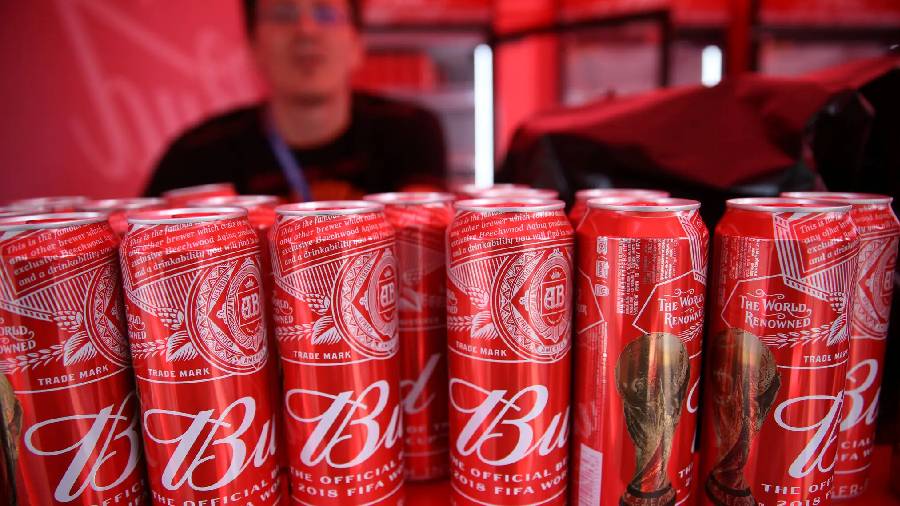Beer has been barred at World Cup stadiums in Qatar.
In an abrupt about-face, Qatari officials have insisted that the only drinks on sale for fans at the eight stadiums will be non-alcoholic. Like Bud Zero, tournament sponsor Budweiser’s zero-alcohol beer.
The decision, which comes two days before the tournament’s opening match between the hosts and Ecuador, has been accepted by Fifa, the owner of the showpiece event.
“Following discussions between host country authorities and FIFA, a decision has been made to focus the sale of alcoholic beverages on the FIFA Fan Festival, other fan destinations and licensed venues, removing sales points of beer from Qatar’s FIFA World Cup 2022 stadium perimeters,” Fifa said in a statement posted on its website.
The only people able to drink alcohol inside the stadiums now will be those inside hospitality boxes, where prices start at around $23,000 for a suite.
The ban has given ammunition to those who were averse to the idea of Qatar hosting a World Cup. Qatar, where the sale of liquor is tightly controlled, had agreed to allow alcohol inside the stadiums when it won the hosting rights 12 years ago.
The U-turn has prompted suggestions that Fifa may not be in control of key decisions related to its most prestigious event. In 2014, for instance, Fifa had persuaded the government of Brazil, where beer sale had been banned since 2003, to change the law for the World Cup.
Prior to the latest reversal, some fan zones had been set up to sell “international beverages”. Fans would have been able to purchase beer inside the stadium perimeters — in designated beer areas, up to three hours before and one hour after each match, but not allowed to take them into the stands.
Fifa has a $75 million deal with Anheuser-Busch InBev (AB InBev), the Belgium-based parent company of Budweiser, for World Cup sponsorship, the agreement dating back to 1985, a year before the Mexico tournament. They are in discussions to renew the deal for the next World Cup, in the US, Canada and Mexico. The ban has cast a shadow on that.
“Some of the planned stadium activations cannot move forward due to circumstances beyond our control,” Reuters quoted AB InBev as saying in a statement.
Someone at the company had summed the situation up in a pithier fashion. “Well, this is awkward...” read a post on Budweiser’s official Twitter account. The comment, subsequently deleted, was broadcast as a screengrab by the BBC.
Fans are divided on the decision.
“It’s a part of the ritual, a World Cup culture. So we will miss out on that. But the primary objective is to watch matches. We are not spending our money to have just beer there. Isn’t it? We will be going to watch our favourite stars in action. So it would have been nice but let’s move on. Different countries have different rules and let’s respect that,” Calcutta-based PR professional Korak Basu, who is landing in Doha on Monday and has tickets for four groupstage matches, told The Telegraph.
European fans though aren’t happy. An executive director of the fan group Football Supporters Europe tweeted: “For many fans, whether they don’t drink alcohol or are used to dry stadium policies at home, this is a detail. It won’t change their tournament. But with 48 (hours) to go, we’ve clearly entered a dangerous territory — where assurances don’t matter anymore.”











